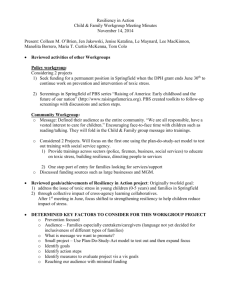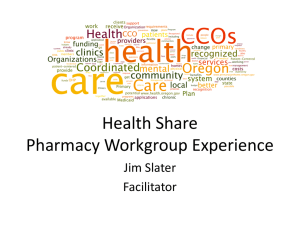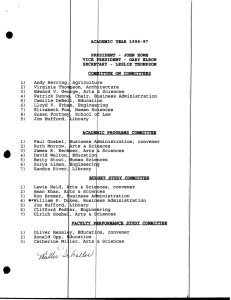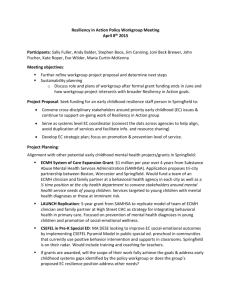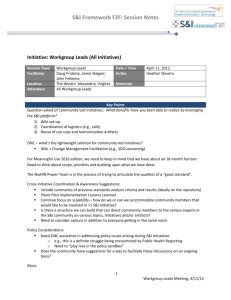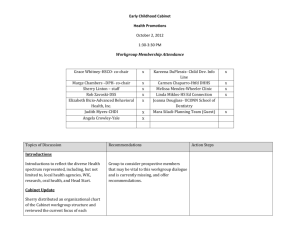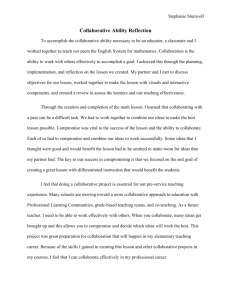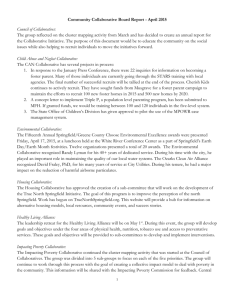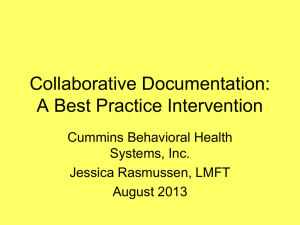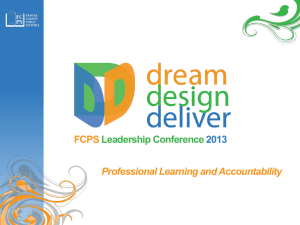January 23, 2015
advertisement
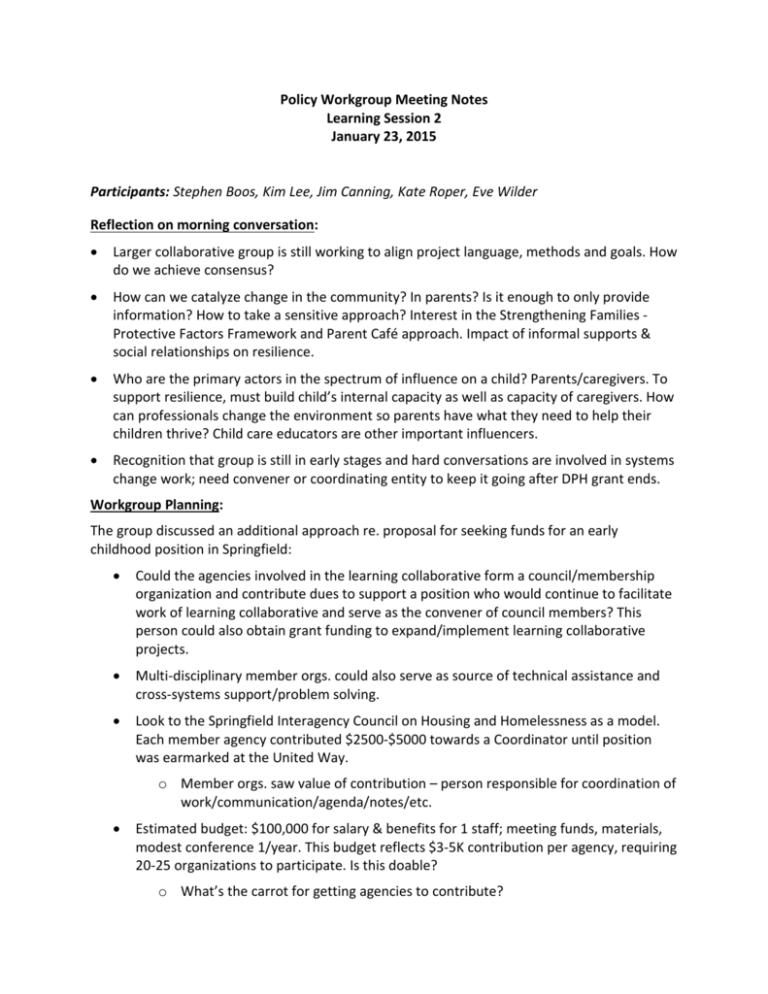
Policy Workgroup Meeting Notes Learning Session 2 January 23, 2015 Participants: Stephen Boos, Kim Lee, Jim Canning, Kate Roper, Eve Wilder Reflection on morning conversation: Larger collaborative group is still working to align project language, methods and goals. How do we achieve consensus? How can we catalyze change in the community? In parents? Is it enough to only provide information? How to take a sensitive approach? Interest in the Strengthening Families Protective Factors Framework and Parent Café approach. Impact of informal supports & social relationships on resilience. Who are the primary actors in the spectrum of influence on a child? Parents/caregivers. To support resilience, must build child’s internal capacity as well as capacity of caregivers. How can professionals change the environment so parents have what they need to help their children thrive? Child care educators are other important influencers. Recognition that group is still in early stages and hard conversations are involved in systems change work; need convener or coordinating entity to keep it going after DPH grant ends. Workgroup Planning: The group discussed an additional approach re. proposal for seeking funds for an early childhood position in Springfield: Could the agencies involved in the learning collaborative form a council/membership organization and contribute dues to support a position who would continue to facilitate work of learning collaborative and serve as the convener of council members? This person could also obtain grant funding to expand/implement learning collaborative projects. Multi-disciplinary member orgs. could also serve as source of technical assistance and cross-systems support/problem solving. Look to the Springfield Interagency Council on Housing and Homelessness as a model. Each member agency contributed $2500-$5000 towards a Coordinator until position was earmarked at the United Way. o Member orgs. saw value of contribution – person responsible for coordination of work/communication/agenda/notes/etc. Estimated budget: $100,000 for salary & benefits for 1 staff; meeting funds, materials, modest conference 1/year. This budget reflects $3-5K contribution per agency, requiring 20-25 organizations to participate. Is this doable? o What’s the carrot for getting agencies to contribute? Agencies could contribute on a sliding scale depending on depth of their pockets. Also consider in-kind contributions (i.e. conference/meeting space). Ideal candidate for Coordinator: person with connections/history in the community and some influence; skilled facilitator/arbitrator. Similar qualities required of a backbone organization (neutral convener) – someone who works for all agencies involved. Where could the council be sited? o Challenge of placing at city govt – can’t be recipient of dues. Suggestions: Partners for a Healthier Community; BayState; Square One (501c3) Need for council to be inclusive and representative of community. Outreach to community groups and students. Jim’s connection to graduate programs. Interns could provide support to the Coordinator. We shouldn’t lose focus on the idea of funding an information & referral/systems navigation staff person. Could this position come out of the membership council? o Need to bring this discussion back to the full policy workgroup. Consider opportunities with Mass 211, MA Family Resource Center & Help Me Grow. What are the synergies with the Boston/Worcester/Springfield ECMH System of Care grant? It seems like each city is interested in creating a similar position. Who are the critical partners key to start up and who would lead others to join? o Ask Joan @ Partners for a Healthier Community o Re-engage DTA How would council interact & coordinate with non-member orgs? What if their approaches/values differed from those of the council? How to move from temporary to stable position? Allow to flow from mission to mission and adapt a long the way to meet changing needs? Eve will email to schedule next policy workgroup meeting in February.
